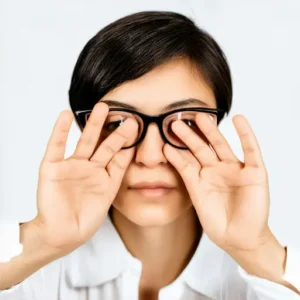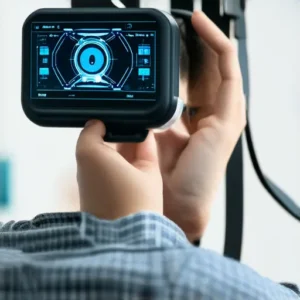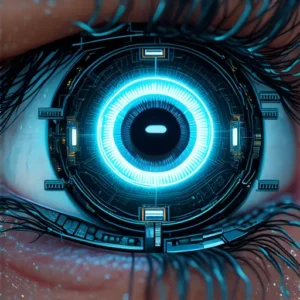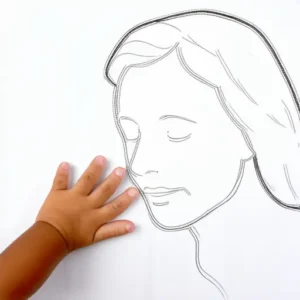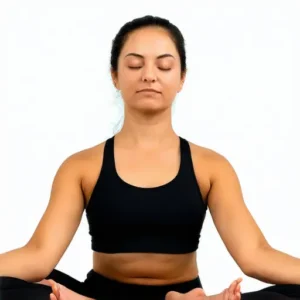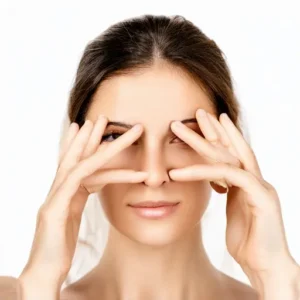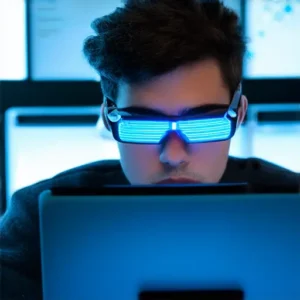Is There Any Way to Make Your Eyesight Better? Start Today!
Can You Actually Improve Your Eyesight Without Surgery or Glasses?
Ever found yourself squinting at your phone or struggling to read street signs, wondering if there’s a natural way to sharpen your vision? Here’s the good news—while serious eye conditions need professional care, there are simple, everyday ways to support your eye health. From tweaking your diet to giving your eyes a break from screens, small changes can add up to clearer vision over time. Whether you’re battling digital eye strain, mild nearsightedness, or just want to keep your eyes in top shape as you age, let’s explore what really works.
How Much Can You Really Improve Your Vision Naturally?
Think of your eyes like any other part of your body—they thrive with proper care. While you can’t magically reverse conditions like astigmatism (sorry, no quick fixes here), you can slow down vision decline and reduce eye strain. Studies show that what you eat, how you use your eyes, and even your sleep habits play a big role in long-term eye health.
Let’s Clear Up These Eye Health Myths
Time to set the record straight:
- “Eating carrots will give you eagle-eye vision.” Not quite—they help, but you need a variety of nutrients.
- “Wearing glasses makes your eyes lazy.” Nope! Proper prescription lenses actually prevent extra strain.
- “Eye exercises can replace your glasses.” They might help with focus, but they’re not a substitute for corrective lenses.
Why Your Future Self Will Thank You for Starting Now
Vision changes happen gradually—like that friend who slowly stops texting back. The earlier you adopt healthy eye habits, the better your chances of maintaining (and maybe even improving) your eyesight down the road.
Eating Your Way to Better Vision: Fact or Fiction?
Turns out, the saying “you are what you eat” applies to your eyes too. Here’s what should be on your plate:
Vision Superfoods (Yes, There’s More Than Just Carrots!)
- Leafy greens: Spinach and kale are like sunglasses for your retina, thanks to lutein and zeaxanthin.
- Fatty fish: Salmon’s omega-3s are basically moisturizer for dry eyes.
- Eggs: The yolks pack a punch of zinc and antioxidants—think of them as your retina’s bodyguards.
The Vitamin Dream Team for Your Eyes
Your eyes crave these nutrients:
- Vitamin A: Your night vision’s best friend (hello, sweet potatoes and carrots).
- Vitamin C: Strengthens those tiny eye blood vessels (citrus fruits are packed with it).
- Vitamin E: Your eyes’ personal bodyguard against damage (nuts and seeds to the rescue).
Don’t Forget to Drink Up for Your Eyes
Dehydration can leave your eyes feeling like a desert. Aim for eight glasses of water daily, and maybe go easy on that third cup of coffee.
Simple Daily Habits That Can Save Your Eyes
Small changes to your routine can make a big difference in how your eyes feel—and function.
The 20-20-20 Rule: Your Eyes’ Best Friend
Every 20 minutes, look at something 20 feet away for 20 seconds. It’s like a mini-vacation for your eye muscles.
Setting Up Your Space for Happy Eyes
- Keep screens at arm’s length and slightly below eye level—no more craning your neck.
- Use soft lighting to avoid that annoying screen glare.
Why Your Eyes Hate Your Bad Habits
Smoking doubles your risk of cataracts, and alcohol can leave your eyes high and dry (literally).
Can Eye Exercises Actually Improve Your Vision?
While they won’t give you superhero vision, these moves can help your eyes feel less tired and more focused.
Easy Eye Workouts Anyone Can Do
- Near-far focusing: Alternate between looking at something close and far away—it’s like CrossFit for your eyes.
- Figure eights: Trace an imaginary 8 with your eyes to improve flexibility.
The Magic of Palming (No, It’s Not a Basketball Move)
Rub your hands together to warm them, then cup them over your closed eyes. Instant darkness = instant relaxation for tired eyes.
How Often Should You Exercise Your Eyes?
Just 5-10 minutes daily can make a difference—think of it as brushing your teeth, but for your vision.
Sleep: Your Eyes’ Secret Weapon
Your eyes do their best healing while you’re catching Z’s—skimp on sleep, and they’ll let you know about it.
How Bad Sleep Messes With Your Vision
Ever noticed your eyes feeling dry or your vision getting blurry after a bad night’s sleep? That’s your eyes begging for rest.
Sleep Tips for Healthier Eyes
- Put down the phone at least an hour before bed—your eyes will thank you.
- Make your bedroom as dark as possible for optimal eye recovery.
Do Glasses Actually Make Your Eyes Worse?
Let’s settle this once and for all: glasses correct your vision but don’t “fix” your eyes. However, they do prevent extra strain that could make things worse.
The Truth About Glasses and Eye Health
Wearing the wrong prescription can strain your eyes, but properly fitted glasses? They’re like a supportive friend for your vision.
When to Call in the Professionals
For serious vision issues, it’s time to see an eye doctor. They might recommend:
- LASIK: Reshapes your cornea for clearer vision—like getting a software update for your eyes.
- Ortho-K: Special contact lenses you wear overnight to temporarily correct your vision.
Your Action Plan for Better Vision
Here’s the game plan:
- Load up on eye-friendly foods
- Practice the 20-20-20 rule religiously
- Try simple eye exercises and prioritize sleep
While genetics play a role, how you treat your eyes every day matters more than you might think. Start implementing these tips today—your future self (and your future eyes) will be glad you did!
What’s your biggest eye health challenge? Share your thoughts in the comments below—we’d love to hear what works for you!
Is There Any Way to Make My Eyesight Better? Science-Backed Answers
Can You Actually Improve Your Eyesight Naturally? Let’s Find Out
Ever found yourself holding a menu at arm’s length or blinking at blurry street signs? If so, you’re not alone—most of us have wondered at some point: “Is there a natural way to improve my eyesight?” Here’s the honest truth: while you can’t reverse certain vision problems, there are absolutely ways to protect and even enhance your eye health through simple daily habits. Whether you’re battling screen fatigue, noticing age-related changes, or just being proactive about your vision, let’s explore what really works (and what doesn’t).
How Your Eyes Really Work
Think of your eyes like high-tech cameras—they need the right conditions to take perfect pictures. The cornea, lens, and retina all work together to focus light and create clear images. When something’s off (like with nearsightedness or farsightedness), it’s often because of the eye’s shape or how it processes light. And while genetics load the gun, lifestyle pulls the trigger when it comes to long-term eye health.
Why Your Vision Might Be Slipping
- Father Time: After 40, presbyopia makes reading menus a struggle (hello, reading glasses!).
- Screen addiction: Binge-watching shows or marathon work sessions can leave your eyes feeling like sandpaper.
- Diet gaps: Skimping on vitamins A, C, E, or zinc? Your eyes notice before you do.
- Sunglass neglect: UV rays don’t just cause wrinkles—they’re public enemy #1 for cataracts.
Why We Keep Searching for That Magic Fix
We’ve all fallen for the hype—maybe you’ve tried eye yoga or chugged carrot juice hoping for 20/20 vision overnight. Some methods help, others… not so much. Let’s cut through the noise with science-backed answers.
Can Eyesight Actually Improve? Here’s What Science Says
Straight talk: it’s complicated. You can’t wish away your glasses prescription, but you absolutely can slow vision decline and keep your peepers in top shape.
Busting Common Eyesight Myths
Time to set the record straight on those old wives’ tales:
- Carrots: Great for night vision? Yes. A cure-all? Nope—Bugs Bunny wasn’t an optometrist.
- Glasses: Skipping them won’t “weaken” your eyes—but you’ll get headaches squinting at Netflix.
What Actually Works for Natural Improvement
Research shows kids who play outside more develop less myopia. For adults? It’s about damage control—manage diabetes (it wrecks vision), block blue light, and feed your eyes the good stuff.
The Big Three: Genetics, Aging, and You
Can’t change your DNA or stop birthdays, but you control:
- Your plate: Leafy greens = natural sunglasses for your retina.
- Screen sanity: The 20-20-20 rule is like a coffee break for your eyes.
- Smoking: Doubles your risk of eye diseases—yet another reason to quit.
Simple Daily Tweaks for Healthier Eyes
Good news: you don’t need a complete life overhaul. Small changes add up to big protection.
Eat Your Way to Better Vision
Next grocery run, toss these in your cart:
- Kale/spinach: Nature’s blue-light blockers.
- Salmon: Its omega-3s fight desert-dry eyes.
- Eggs: The yolks are gold for vitamin A.
Don’t Skimp on the Basics
Dehydrated? Your eyes feel it first. Tired? Your tears dry up. Drink like a cactus, sleep like a baby—your eyes will thank you.
Screen Survival Guide
Try these tonight: enable night mode on devices, match screen brightness to the room, and keep screens at piano-distance (no nose-to-phone!).
Do Eye Exercises Work or Is It Hype?
They won’t ditch your glasses, but can relieve that “tired eyes” feeling.
Quick Eye Gym Routines
- Palming: Warm hands over closed eyes = instant spa mode.
- Focus drills: Alternate between your pen and something across the room.
The Golden Rule: 20-20-20
Set a phone reminder: Every 20 minutes, stare at something 20 feet away for 20 seconds. Your future self will high-five you.
When to Call in the Professionals
Sometimes lifestyle changes need backup—and that’s okay.
Glasses and Contacts 101
Think of them as wheelchairs for your eyes—they compensate for what’s not working. Just remember to update your prescription (no using your 2015 specs in 2024!).
Considering LASIK?
It’s like getting your corneas tailored—life-changing for many, but not for everyone (your eye doc will tell you straight).
The Bottom Line
So can you improve your eyesight naturally? Not like flipping a switch—but with smart daily choices (eat greens, block blue light, wear shades) plus medical help when needed, you can absolutely protect and optimize your vision. Start tonight: try the 20-20-20 rule during your next binge session, and book that eye exam you’ve been putting off. Your eyes do so much for you—time to return the favor!
What’s your go-to trick for tired eyes? Share your tips below—we’re all in this together!
Is There Any Way to Improve Your Eyesight with Technology?
Can You Really Improve Your Eyesight? Let’s Find Out
Ever squinted at your phone and thought, “There’s got to be a better way to see this?” Whether you’re battling blurry vision, digital eye strain, or just want to keep your peepers in top shape, the good news is—you’ve got options. From simple lifestyle tweaks to high-tech solutions, this guide covers everything science says about sharpening your vision. Ready to see things more clearly? Let’s jump in.
Why Your Eye Health Matters More Than You Think
Think about how much your eyes do every day—reading street signs, spotting your friend in a crowd, admiring a sunset. When your vision isn’t at its best, it affects everything from your productivity to your safety. And with screens dominating our lives, taking care of your eyes isn’t just important—it’s essential.
What’s Actually Causing Your Vision Problems?
Your eyesight doesn’t just change overnight. Here are the usual suspects behind vision changes:
- Getting older: After 40, reading menus becomes a challenge (thanks, presbyopia).
- Too much screen time: Your eyes weren’t built to stare at pixels all day.
- Family traits: If your parents wore glasses, you might too.
- Diet gaps: Skimping on leafy greens? Your eyes might be paying the price.
Tech to the Rescue? How Modern Tools Are Changing Eye Care
Between AI eye exams and laser precision surgeries, technology’s doing some pretty amazing things for vision. But can it actually improve your eyesight? Let’s separate fact from fiction.
Natural Ways to Boost Your Eye Health
Before you consider high-tech solutions, these everyday habits can make a real difference.
Eat Your Way to Better Vision
Your eyes literally are what you eat. Load up on these vision superstars:
- Kale and spinach: Nature’s sunglasses, packed with protective pigments.
- Salmon: The omega-3s in fish keep your retinas happy.
- Carrots: Turns out Bugs Bunny was onto something—beta-carotene really does help night vision.
Do Eye Exercises Actually Help?
They won’t magically ditch your glasses, but try this: Every 20 minutes, look 20 feet away for 20 seconds (the 20-20-20 rule). Your strained eyes will thank you.
Set Up Your Space for Eye-Friendly Success
Bad lighting + nonstop scrolling = recipe for eye strain. Adjust your screen brightness, use anti-glare filters, and for heaven’s sake—take breaks!
Tech That’s Changing How We See
From smart glasses to laser precision, modern solutions are pretty impressive.
Why Screens Make Your Eyes So Tired
Fun fact: You blink 66% less when staring at screens. No wonder your eyes feel like sandpaper by 3 PM.
Blue Light Blockers—Worth It?
Those amber-tinted glasses aren’t just a fashion statement. They can help reduce eye strain and even improve sleep if you’re glued to devices at night.
Vision Training Apps That Actually Work
Apps like EyeCare Plus turn eye exercises into mini-games. Who knew strengthening your eyes could be fun?
When to Consider Medical Solutions
For more dramatic improvements, today’s medical options are safer and more effective than ever.
LASIK and Friends: What You Need to Know
15 minutes and you’re done? LASIK’s quick fix comes with a high satisfaction rate, but it’s not for everyone.
Ortho-K: Contacts That Work While You Sleep
Special lenses gently reshape your cornea overnight—wake up with clearer vision, no surgery required.
The Cutting Edge: Lens Implants and Beyond
From permanent lens replacements to cataract solutions, surgical options keep getting better.
The Coolest Wearable Tech for Your Eyes
Yes, your glasses might soon be smarter than your phone.
AR Glasses That Do More Than Just Look Cool
Companies are developing glasses that can zoom, enhance contrast, and even read text aloud—game changers for low vision.
At-Home Eye Monitoring
Devices like EyeQue let you track vision changes from your couch—no doctor’s office needed.
AI Glasses That Adjust on the Fly
Imagine glasses that automatically focus where you look. The future is basically here.
Simple Habits for Lifelong Eye Health
Little changes add up to big protection for your vision.
Screen Time Survival Guide
Repeat after me: 20-20-20 rule. Your eyes weren’t meant to binge-watch entire seasons in one sitting.
Why Yearly Eye Exams Are Non-Negotiable
Glaucoma doesn’t send warning texts—get checked before problems start.
Sunglasses Aren’t Just for Looking Cool
UV protection matters as much for your eyes as sunscreen does for your skin.
The Bottom Line on Better Vision
So can you actually improve your eyesight? Absolutely. Whether through better habits, smart tech, or medical procedures, clearer vision is within reach. The best approach? Start with the simple stuff today—your future self will see the difference (literally).
Quick Vision Takeaways
- Your salad is secretly eye armor
- Screen breaks are free vision insurance
- Modern eye surgery is safer and more precise than ever
- The future of vision tech looks incredibly bright
Your Turn
What’s your biggest vision challenge? Blurry screens? Night driving? Share what works for you in the comments—let’s help each other see the world more clearly!
Is There a Way to Restore Eyesight? Myths vs. Facts
Can You Really Restore Your Eyesight? The Truth Behind Vision Improvement
When you’re struggling to read a menu or recognize faces across the room, it’s natural to wonder: “Is there any way to get my old vision back?” Whether it’s age creeping up, an old injury acting up, or genetics playing tricks, millions of us are searching for that magic bullet to restore crystal-clear sight. But between grandma’s carrot juice remedy and futuristic bionic eye ads, how do you separate fact from fiction?
Let’s cut through the noise together. I’ll walk you through what modern science can (and can’t) do for vision restoration, expose common myths, and share practical ways to protect your peepers. By the end, you’ll have a clear-eyed view of your options.
Why This Question Keeps Coming Up
Let’s be real – vision changes can be scary. One day you’re reading fine print, the next you’re squinting at your phone. People ask about restoration because:
- Glasses and contacts feel like a hassle (and let’s not even talk about losing them)
- Conditions like cataracts or macular degeneration sneak up as we age
- Diabetes or glaucoma can threaten sight before you know it
- The internet is full of too-good-to-be-true “overnight vision fixes”
What’s Actually Causing Your Vision Problems?
Before we talk fixes, let’s diagnose the issue. Common culprits include:
- The usual suspects: Nearsightedness, farsightedness, astigmatism (thankfully, these are often fixable)
- Cataracts: Like looking through a foggy windshield (but surgery works wonders)
- Glaucoma: Silent thief of sight (damage is permanent but stoppable)
- Macular degeneration: Blurs your central vision (some treatments exist)
- Diabetic retinopathy: Sugar damage to retinal blood vessels (early action is key)
Why You Should Trust Science Over Social Media
When it comes to your eyes, you don’t want to play guessing games. Let’s look at what actually works.
Natural Vision Improvement: Myth or Reality?
Scroll through any health forum and you’ll find claims about “healing” your eyes naturally. While healthy habits help, true vision restoration usually needs medical help.
Do Eye Exercises Really Work?
You’ve probably seen those “throw away your glasses” exercise programs. Here’s the real deal:
- Good for: Reducing eye strain after screen time
- Not so good for: Actually changing your eye shape or prescription
- Exception: Can help with certain eye coordination issues
The Carrot Conspiracy
Yes, carrots have vitamin A. No, they won’t give you eagle vision. The nutrition truth:
- Carrots help night vision but won’t fix existing problems
- Lutein and zeaxanthin might slow macular degeneration
- Omega-3s are great for dry eyes but won’t sharpen blurry text
Lifestyle Changes That Actually Matter
While these won’t reverse damage, they’re your best defense:
- Ditching cigarettes cuts macular degeneration risk
- Rocking sunglasses prevents cataracts (style points included)
- Keeping blood sugar steady protects diabetic eyes
Medical Marvels: Proven Ways to Improve Vision
Modern medicine offers some impressive options when nature needs a helping hand.
LASIK and Friends: Worth the Hype?
Laser eye surgery has come a long way:
- Success rate: Most people hit 20/20 or better
- Reality check: Still need reading glasses after 40
- Possible side effects: Dry eyes, night halos (usually temporary)
Cataract Surgery: Like Wiping a Dirty Window
One of modern medicine’s greatest hits:
- Swap cloudy lens for a clear artificial one
- Bonus: Can correct presbyopia with fancy lenses
- 95% of patients say it’s life-changing
When You Need More Serious Help
For severe cases:
- Corneal transplants (partial or full)
- Retinal surgeries for detachments
- Experimental artificial corneas
The Future of Vision: High-Tech Hope
Where traditional treatments fall short, science is pushing boundaries.
Bionic Eyes: Sci-Fi Becoming Reality
Devices like Argus II offer:
- Basic light and shape perception for the blind
- Current tech is crude but improving fast
- Future versions aim for detailed vision
Stem Cells: The Long Game
Still experimental but promising for:
- Growing new retinal cells
- Repairing optic nerve damage
- Clinical trials show mixed but hopeful results
Gadgets That Help When Vision Can’t Be Restored
For permanent vision loss:
- Smart glasses that enhance contrast
- AI apps describing surroundings
- High-tech magnifiers and readers
Vision Myths That Need to Die
Let’s put these old wives’ tales to rest.
“Reading in the Dark Ruins Your Eyes”
Might give you a headache, but no permanent damage.
“Glasses Make Your Eyes Weaker”
Nope. Not wearing needed glasses can actually worsen kids’ vision.
“Herbal Remedies Can Restore Sight”
If only eye problems could be fixed with tea and massage. Always see an eye doctor first.
Protecting What You’ve Got
Prevention is always better than cure.
Eye Exams: Your Early Warning System
- Yearly checkups catch problems early
- Dilated exams show what’s happening in the back
- Glaucoma tests are quick and painless
Digital Eye Strain: The Modern Problem
- Follow the 20-20-20 rule (your eyes will thank you)
- Blue light filters help heavy screen users
- Blink more – seriously, we all forget
Eating for Eye Health
- Load up on leafy greens and fatty fish
- Keep blood pressure and cholesterol in check
- Skip smoking – your eyes hate it
When Restoration Isn’t Possible: Facing Reality
Some conditions cause permanent damage, but life goes on.
Living With Glaucoma or Macular Degeneration
While these can’t be cured:
- Early treatment slows progression
- Rehab programs teach adaptation skills
- Research continues to advance
Tech That Helps When Vision Can’t Be Fixed
Modern aids include:
- Talking devices for everyday tasks
- High-contrast everything
- Guide dogs and mobility training
Adjusting to Low Vision
- Better home lighting makes a huge difference
- Support groups help emotionally
- Special training rebuilds confidence
The Bottom Line on Eyesight Restoration
What Actually Works
- Glasses, contacts, or surgery fix refractive errors
- Cataract surgery is incredibly successful
- Some retinal treatments can slow decline
- Healthy habits support but rarely restore vision
Final Advice: Be Smart About Eye Health
While we can’t always restore perfect vision, today’s options are better than ever. The keys? Realistic expectations, early action, and a great eye doctor in your corner. Now that you know the facts, you can navigate the vision world without falling for hype.
Still have questions about improving your eyesight? Drop them in the comments – and don’t put off that eye exam!
Hope for the Blind: Is There a Way to Regain Eyesight?
Can You Really Regain Your Eyesight? The Hopeful Truth
Imagine waking up one day to darkness. For millions worldwide, this isn’t just a thought experiment—it’s daily life. Whether from injury, disease, or genetics, vision loss can feel like a life sentence. But here’s the good news: medical science is rewriting that story every day. While we can’t yet promise perfect vision for everyone, the breakthroughs happening right now might just change what we thought was possible. Let’s explore what’s really working today—and what might work tomorrow.
Why Do People Lose Their Vision?
Blindness isn’t one condition—it’s many. The cause makes all the difference in treatment options:
- Retinal diseases: Like macular degeneration stealing central vision
- Corneal damage: From injuries or infections leaving scars
- Cataracts: That cloudy lens effect we often associate with aging
- Glaucoma: The silent thief of peripheral vision
- Genetic conditions: Some people are born with vision challenges
- Trauma: Accidents or strokes that disrupt vision pathways
Here’s why this matters: your chances of regaining sight depend entirely on what caused the loss in the first place.
The Million-Dollar Question: Can Blindness Be Reversed?
Straight talk—we don’t have a magic wand yet. But what we do have is science moving at lightning speed. From bionic eyes to gene editing, researchers are turning sci-fi into reality. Let’s look at what’s working now and what’s coming down the pipeline.
Today’s Vision Restoration Breakthroughs
Bionic Eyes: More Than Just Sci-Fi
Devices like the Argus II are already giving people with retinitis pigmentosa something incredible—the ability to see shapes and movement again. Here’s how these tiny miracles work:
- A tiny camera captures the world
- Smart tech converts images to electrical signals
- Your brain learns to interpret these new “light” patterns
It’s not 20/20 vision yet, but for someone who’s been in total darkness? Life-changing.
Stem Cells: Your Body’s Repair Kit
Stem cells are showing amazing promise for:
- Growing new retinal cells for macular degeneration patients
- Healing damaged corneas with lab-grown tissue
- Potentially even fixing optic nerves (something we thought was impossible)
Real-world results? A 2023 study in Nature showed legally blind patients reading eye charts after stem cell treatments.
Gene Therapy: Fixing Vision at the Source
For genetic conditions like Leber congenital amaurosis, we now have Luxturna—the first FDA-approved gene therapy that actually delivers working genes to fix broken ones in kids’ eyes. It’s not just slowing vision loss; it’s reversing it.
Surgical Solutions That Actually Work
Corneal Transplants: Clear Vision Returns
With success rates over 90%, new techniques like DMEK make recovery faster than ever. One day you’re blind from corneal scarring, the next you’re seeing your loved ones clearly.
Cataract Surgery: Quick and Life-Changing
This 15-minute procedure swaps your cloudy lens for a crystal-clear artificial one—often with better vision than you’ve had in years.
Optic Nerve Repair: The New Frontier
Doctors used to say optic nerve damage was permanent. Not anymore. Experimental treatments are showing promise with:
- Nerve growth factors
- Electrical stimulation therapies
- Smart biomaterials that guide healing
Non-Surgical Options Worth Considering
Medications That Save Sight
Injections like Eylea have transformed wet macular degeneration from a certain path to blindness to a manageable condition.
Tech That Maximizes Remaining Vision
For irreversible cases, today’s assistive tech is incredible:
- Smart glasses that enhance contrast
- AI apps that narrate your surroundings
- Electronic magnifiers that read text aloud
Training Your Brain to See Differently
Through vision therapy, many patients learn to use their remaining sight more effectively—proving the brain’s amazing ability to adapt.
The Future of Vision Restoration
AI Meets Bionics
Artificial intelligence is supercharging visual prosthetics by:
- Making retinal implants smarter
- Optimizing nerve stimulation patterns
- Developing AR contact lenses
CRISPR: Editing Out Blindness
This revolutionary gene-editing tool might soon correct mutations causing inherited blindness—early trials are already underway.
3D-Printed Eyes?
Scientists are now printing living corneal tissue from patient cells, potentially solving donor shortages forever.
Supporting Your Eye Health Naturally
Eat Your Way to Better Vision
Load up on:
- Leafy greens (lutein and zeaxanthin)
- Fatty fish (omega-3s)
- Colorful veggies (vitamin A)
Do Eye Exercises Help?
They won’t cure blindness, but can improve:
- Eye coordination
- Focusing ability
- Digital eye strain relief
Protect What You Have
Simple habits make a difference:
- Rock those sunglasses
- Control diabetes and blood pressure
- Get regular eye checkups
The Reality Check
Conditions We Can’t Yet Fix
Complete optic nerve damage and advanced glaucoma still have limited options—but research never stops.
The Cost of Cutting-Edge Care
Some treatments like Luxturna cost nearly $1 million per eye—making accessibility a real challenge.
Ethical Questions
As with all medical advances, we need to ensure these life-changing treatments reach everyone who needs them.
Final Thoughts: Hope on the Horizon
While we can’t yet restore perfect vision to everyone, the progress is breathtaking. What was impossible yesterday is routine today—and what seems like science fiction now might be in your eye doctor’s office next year. The best advice? Stay informed, protect the vision you have, and keep hope alive. After all, in the world of vision restoration, tomorrow’s breakthroughs are being born in today’s labs.
What vision restoration topic fascinates you most? We’d love to hear your thoughts—share in the comments below!
Is There a Way to Naturally Improve Eyesight? Try These Hacks
Can You Really Improve Your Eyesight Naturally? Let’s Find Out
Ever found yourself squinting at a menu in dim lighting or blinking at your computer screen wondering if your vision could be sharper without reaching for glasses? You’re in good company. While serious vision problems need professional care, there are plenty of natural ways to support your eye health that might surprise you.
From the foods that fuel your eyes to simple daily habits, we’re breaking down what actually works—and what doesn’t—when it comes to naturally maintaining healthy vision. No magic potions here, just science-backed strategies you can start today.
Why Everyone’s Talking About Natural Vision Improvement
Between endless Zoom calls and smartphone scrolling, our eyes are working overtime these days. Add in normal aging and a growing interest in holistic health, and it’s no wonder people are looking beyond the optometrist’s office for ways to keep their vision crisp.
What Science Says About Your Eyes and Lifestyle
While you can’t change your genes or stop the clock, research shows your daily choices make a real difference. Things like what you eat, how you manage stress, and even your sleep habits can either support or strain your precious peepers.
What We’ll Cover
We’ll serve up practical tips on eye-friendly foods, simple exercises, smart screen habits, and more—plus we’ll bust some persistent vision myths along the way. Just remember: these are complements to professional eye care, not replacements.
Feed Your Eyes: The Vision-Boosting Diet
Your eyes are hungry for specific nutrients. Here’s how to satisfy them.
Superfoods for Super Vision (Move Over, Carrots)
- Leafy greens: Think of kale and spinach as natural sunglasses, packed with pigments that filter harsh blue light.
- Fatty fish: Salmon’s omega-3s act like moisture therapy for dry, tired eyes.
- Eggs: That golden yolk delivers the same vision protectors as greens, plus a zinc boost.
- Citrus fruits: Oranges give your eye’s tiny blood vessels a vitamin C shield.
Must-Have Nutrients for Clear Vision
Your eyes’ dream team includes:
- Vitamin A (your night vision guardian)
- Vitamin E (your eye cell bodyguard)
- Zinc (the nutrient Uber that delivers vitamin A where it’s needed)
Why Your Eyes Crave Hydration
When you’re dehydrated, your eyes feel it first. Keep them happy with 8–10 glasses of water daily—cucumber slices in your water make it more refreshing.
Eye Yoga: Simple Exercises for Stronger Vision
Your eye muscles need workouts too—here’s how to keep them flexible.
Quick Vision Workouts Anyone Can Do
- Near-far focusing: Alternate between reading text up close and gazing across the room to reduce screen stiffness.
- Figure eights: Trace imaginary lazy eights with your eyes to improve their range of motion.
- Palming: Warm your hands and gently cup them over closed eyes for a mini eye spa moment.
The Screen Saver Rule: 20-20-20
Every 20 minutes, give your eyes a 20-second vacation by looking 20 feet away. Your strained peepers will thank you.
Making Eye Exercises Stick
Just 5–10 minutes daily can make a difference, especially if you’re glued to screens. Try pairing them with your morning coffee or evening wind-down routine.
Daily Habits That Help or Hurt Your Vision
Your routine affects your eyes more than you might think.
Sleep: Your Eyes’ Overnight Repair Shop
Skimping on shut-eye leads to dry, irritated eyes. Those 7–9 hours aren’t just beauty sleep—they’re vision maintenance time.
Breaking Up With Screens (A Little)
Blue light isn’t the only issue—we blink less when staring at devices. Try setting reminders to look away periodically.
Smoking, Drinking, and Seeing Clearly
Smoking doubles your risk of serious eye diseases, while alcohol dehydrates your whole system—eyes included.
Sunlight and Vision: Finding the Sweet Spot
Like most good things, sunlight is best in moderation.
The Bright Side of Natural Light
Morning sunshine helps kids’ developing eyes and keeps our internal clocks ticking right—just don’t stare directly at it.
Shielding Your Eyes from UV Damage
Quality sunglasses aren’t just stylish—they’re like sunscreen for your eyes, blocking harmful rays that accelerate aging.
Sun Gazing: Dangerous Trend Alert
No matter what wellness influencers say, staring at the sun is like microwaving your retinas—just don’t do it.
Do Natural Vision Remedies Actually Work?
Some traditional approaches hold water, others… not so much.
Herbs That Might Help
Bilberry gets points for antioxidants, but don’t expect miracles. Always check with your eye doctor before trying supplements.
The Magic of a Warm Compress
A warm washcloth on closed eyes can unclog irritated oil glands—it’s like a mini facial for your eyelids.
Separating Fact From Folklore
While certain remedies have benefits, no natural cure can reshape your eyeballs. Focus on what’s proven.
How Stress Messes With Your Vision
Ever noticed your vision gets worse during stressful times? There’s a reason.
The Physical Toll of Stress on Eyes
Chronic tension can literally change how your eyes focus, and stress hormones may increase glaucoma risk over time.
Calming Techniques for Clearer Vision
Simple breathing exercises can relax your eye muscles and prevent that “tunnel vision” feeling during stressful moments.
The Mind-Eye Connection
Your mental state affects how you see the world—literally. Managing stress helps maintain comfortable vision.
Vision Myths We Need to Retire
Let’s clear up some persistent eye health misconceptions.
Old Wives’ Tales Debunked
- Myth: Carrots alone guarantee perfect vision.
- Truth: They help, but variety is key—like eating only broccoli for overall health.
Why Glasses Aren’t the Enemy
Wearing needed prescription glasses is like wearing shoes that fit—they help, not hurt. Going without just strains your eyes unnecessarily.
Knowing When to See a Professional
Natural methods are great for maintenance, but serious conditions need medical attention. Think of these tips as part of your eye health toolkit.
Wrapping Up: Your Natural Vision Action Plan
Quick Recap of What Works
- Load up on leafy greens, colorful veggies, and omega-3s
- Give your eyes regular breaks and gentle exercises
- Protect them from sun and screens when possible
- Manage stress and prioritize sleep
Finding the Right Balance
While we all wish for a magic bullet for perfect vision, the reality is that eye health takes consistent care. Try incorporating a few of these natural strategies alongside your regular eye exams—your future self will thank you when you’re still reading menus without squinting at 60.
Have you tried any natural vision improvement methods? We’d love to hear what’s worked (or hasn’t) for you in the comments!
Is There a Way to Improve Your Vision as You Age?
Introduction: Why Your Vision Changes as You Age (And What You Can Do About It)
Let’s face it—getting older comes with some not-so-fun changes, and our eyesight is often one of the first things to go. But here’s the good news: while some vision decline is natural, there are real ways to keep your eyes sharper for longer. Whether it’s through simple lifestyle tweaks, smarter food choices, or modern treatments, this guide will walk you through everything that actually works to protect your vision as you age.
Why Do Our Eyes Change as We Get Older?
Just like the rest of our body, our eyes show wear and tear over time. That once-perfect vision starts to blur because the lenses in our eyes lose flexibility (hello, reading glasses!). The retina gets thinner, tear production slows down (cue dry, irritated eyes), and we become more vulnerable to conditions like cataracts and glaucoma. It’s not all doom and gloom though—understanding these changes is the first step to fighting back.
The Usual Suspects: Common Age-Related Eye Issues
- Presbyopia: That frustrating moment when your arms suddenly seem too short to read menus (usually kicks in after 40).
- Cataracts: When your eye’s natural lens gets cloudy, like a dirty camera lens.
- Glaucoma: Silent but dangerous—this sneaky pressure buildup can damage your optic nerve before you notice symptoms.
- Macular Degeneration: Blurs the center of your vision, making details like faces or text harder to see.
Can You Actually Improve Aging Eyes Naturally?
While we can’t turn back the clock completely, there’s plenty you can do to slow the decline and keep your vision clearer. Think of it like maintaining a car—regular care makes all the difference.
Eat Your Way to Better Vision
You really are what you eat when it comes to eye health. The right foods act like natural armor for your peepers.
Superfoods for Super Vision
- Leafy Greens: Popeye was onto something—spinach and kale are packed with vision-protecting lutein and zeaxanthin.
- Fatty Fish: Salmon’s omega-3s are like spa treatments for your retina.
- Orange Veggies: Carrots and sweet potatoes aren’t old wives’ tales—their beta-carotene really does help night vision.
- Citrus Fruits: Oranges give your eye’s blood vessels a vitamin C boost.
The Eye Vitamin Cheat Sheet
These nutrients are your eyes’ best friends:
- Vitamin A: Keeps dry eyes and night blindness at bay.
- Vitamin E: Your eyes’ personal bodyguard against damage.
- Zinc: The delivery guy that gets vitamin A where it needs to go.
- Lutein & Zeaxanthin: Nature’s blue light blockers.
Don’t Forget to Drink Up!
Dehydrated body = dehydrated eyes. Keep that water bottle handy to prevent that gritty, tired-eye feeling.
Simple Lifestyle Changes That Make a Big Difference
Small daily habits can have an outsized impact on your eye health. Here’s what actually works:
Give Your Eyes a Workout
Try the 20-20-20 rule: Every 20 minutes, look at something 20 feet away for 20 seconds. It’s like a coffee break for your eyes! Other easy exercises:
- Focus shifting (practice zooming your vision between near and far objects)
- Palming (warm your hands and gently cup them over closed eyes—instant relaxation!)
Screen Time Survival Guide
Since we’re all glued to our devices, try these tricks:
- Use night mode or blue light filters
- Match your screen brightness to the room
- Keep screens at arm’s length—no nose-to-phone allowed!
Beauty Sleep for Your Eyes
Your eyes repair themselves while you sleep. Skimping on shut-eye leads to dry, irritated eyes—another great reason to hit the hay earlier.
Why Regular Eye Exams Are Non-Negotiable
Think of eye exams like dental cleanings—annoying but absolutely necessary.
Catch Problems Before They Catch You
Many serious eye conditions show no early symptoms. Regular check-ups can spot trouble before it’s too late.
Update Your “Eye Prescription”
Wearing outdated glasses is like running in old sneakers—it works, but not well. Keep your prescription current for crisp, comfortable vision.
Prevention Is the Best Medicine
Your eye doctor might suggest:
- Special lens coatings to reduce glare
- Targeted supplements if you’re at risk for certain conditions
When Lifestyle Isn’t Enough: Medical Options
Sometimes, we need to call in the professionals. Modern eye care offers some impressive solutions.
Surgical Solutions That Work
From quick LASIK procedures to cataract surgery (which is way more advanced than your grandparents’ version), today’s treatments can work wonders.
Glasses and Contacts 2.0
Modern options include:
- Progressive lenses that eliminate the “bifocal line”
- Contacts that adjust focus automatically
The Future of Eye Care
Exciting developments like bionic retinas are giving hope for restoring vision in previously untreatable conditions.
Separating Fact from Fiction in Eye Care
Let’s bust some myths and get to the truth.
Eye Health Myths That Need to Die
- Myth: Carrots alone will give you eagle-eyed vision.
- Truth: While helpful, carrots are just one piece of the eye health puzzle.
What Actually Works
Science-backed strategies include:
- Wearing sunglasses religiously (UV damage is cumulative)
- Quitting smoking (it’s terrible for your eyes, not just your lungs)
Red Flags You Shouldn’t Ignore
Call your eye doctor ASAP if you notice:
- Sudden vision changes
- Flashes of light or persistent eye pain
The Bottom Line
While we can’t stop the clock, we can definitely slow its effects on our vision. Start with small changes—schedule that overdue eye exam, toss some spinach in your smoothie, or try the 20-20-20 rule at work today. Your future self (with their clearer vision) will thank you!
Is There a Way to Improve Your Eyesight? Experts Weigh In
Can You Really Improve Your Eyesight Naturally? Let’s Find Out
Ever found yourself squinting at a menu in dim lighting or blinking hard to clear blurry text on your phone? You’re not alone. Many of us wonder: can we actually improve our eyesight without reaching for glasses or considering surgery? While serious vision problems need professional care, there are plenty of natural ways to support your eye health. Let’s dive into some practical, science-backed strategies—from simple daily habits to targeted exercises—that can help keep your vision sharp and your eyes healthy.
Why Your Eye Health Deserves Attention
Think of your eyes as the high-definition cameras of your body—constantly capturing life’s moments. But between screen time, aging, and environmental factors, we often push them to their limits. Poor vision doesn’t just make daily tasks harder; it can also be a red flag for health issues like diabetes or high blood pressure. The good news? With some proactive care, you can help prevent problems like digital eye strain, cataracts, and macular degeneration.
What’s Behind Declining Vision?
While some vision changes are inevitable with age, many factors are within our control:
- Getting older: After 40, many people notice it’s harder to focus up close (hello, reading glasses!).
- Too much screen time: Those long Netflix binges? Your eye muscles are working overtime.
- Missing key nutrients: Skimping on vitamins A, C, E, or omega-3s can leave your eyes undernourished.
- Health conditions: Diabetes and high blood pressure can quietly damage delicate eye tissues.
The Truth About Improving Your Vision Naturally
Before we get into solutions, let’s clear up some common misconceptions.
How Your Eyes Actually Work
Imagine your eye as a sophisticated camera. Light enters through the cornea, gets focused by the lens, and creates an image on the retina. When this system isn’t perfectly aligned, we get refractive errors like nearsightedness. While you can’t change your eye’s basic structure naturally, you can absolutely support its health and function.
Busting Common Eye Health Myths
- Myth: “Carrots will give you superhero vision.” Truth: While carrots (packed with beta-carotene) are great for eye health, they won’t magically fix your prescription.
- Myth: “Eye exercises can straighten a curved cornea.” Truth: Exercises help with eye strain but can’t correct astigmatism.
Simple Lifestyle Tweaks for Better Vision
Small changes can make a big difference in how your eyes feel and function every day.
Eat Your Way to Healthier Eyes
Your eyes crave specific nutrients:
- Lutein & zeaxanthin: Think spinach and kale—nature’s sunglasses that filter blue light.
- Omega-3s: Found in salmon and walnuts, they help combat dry eyes.
- Vitamin C: Oranges and strawberries may help keep cataracts at bay.
Don’t Underestimate Sleep and Water
Ever noticed how your eyes feel gritty after a sleepless night? That’s because rest and hydration are fuel for your eyes. Aim for 7-9 hours of quality sleep and keep a water bottle handy—your eyes will thank you.
Give Your Eyes a Break From Screens
Try the 20-20-20 rule: Every 20 minutes, look at something 20 feet away for 20 seconds. It’s like a mini-vacation for your eye muscles!
Do Eye Exercises Actually Work?
While they won’t replace your glasses, certain exercises can help reduce strain and improve focus flexibility.
Easy Eye Exercises to Try Today
- Palming: Warm your hands by rubbing them together, then gently cup them over closed eyes. Instant relaxation!
- Figure eights: Trace an imaginary infinity sign with your eyes to improve coordination.
How Often Should You Exercise Your Eyes?
Just 5-10 minutes daily can make a difference. Think of it like brushing your teeth—consistency is key.
What Science Says About Eye Exercises
Research shows exercises can help with certain focusing issues, but they’re not a cure-all. They work best as part of an overall eye-healthy lifestyle.
When to Consider Professional Help
Sometimes, natural methods aren’t enough—and that’s okay!
Glasses and Contacts: The Classics
Modern lenses are lighter and smarter than ever. Contacts offer freedom but require careful hygiene—no sleeping in them!
LASIK: Is It Right for You?
This popular procedure can correct vision long-term, but it’s not for everyone. Potential side effects like dry eyes are worth considering.
Other Medical Options
From cataract surgery to specialized treatments for conditions like glaucoma, modern medicine offers solutions when needed.
Protecting Your Vision for the Long Haul
Prevention is always better than cure when it comes to your eyes.
Don’t Skip Your Eye Exams
Adults should get checked every 1-2 years, while kids need regular screenings to catch issues early.
Shield Your Eyes From the Elements
Quality sunglasses aren’t just stylish—they block harmful UV rays. And if you smoke, quitting is one of the best things you can do for your eyes.
Manage Overall Health for Better Vision
Conditions like diabetes and high blood pressure can affect your eyes, so keeping them under control is crucial.
Exploring Alternative Approaches
Some people swear by these methods, but what does the science say?
Acupuncture for Eye Health
While it may improve circulation, evidence for treating vision problems is limited.
Herbs and Supplements
Bilberry gets a lot of hype, but research is still catching up. Always check with your doctor first.
Vision Therapy Explained
Customized programs with an eye doctor can help with certain coordination issues, but they’re not magic bullets.
Wrapping It Up: The Bottom Line on Better Vision
So, can you improve your eyesight naturally? Here’s the honest truth: While you can’t change your basic prescription without medical help, you can absolutely support your eye health, reduce strain, and potentially slow vision changes. Start with the basics—eat well, stay hydrated, protect your eyes from screens and sun—and don’t put off those eye exams. Your future self will thank you when you’re still enjoying crisp, clear vision years from now!
Quick Vision Tips to Remember
- Load up on leafy greens and omega-3s—your eyes crave these nutrients.
- Give your eyes regular breaks from screens—the 20-20-20 rule works wonders.
- Regular check-ups can catch problems early when they’re easiest to treat.
One Last Thought
Your eyes work hard for you every single day. Why not return the favor with some simple care? Try one new eye-healthy habit this week, and share in the comments—what’s your favorite way to show your eyes some love?
Is There a Way to Improve Vision as You Age?
Can You Really Improve Your Vision Naturally as You Age?
Let’s face it—getting older comes with some not-so-fun changes, and our vision is often one of the first things to go. But here’s the good news: while you can’t turn back the clock completely, there are real ways to protect your peepers and even sharpen your sight. Think of it like maintaining a car—regular tune-ups and quality fuel make all the difference. In this guide, we’ll walk through why our eyes change with age, practical habits that help, and when it’s time to call in the pros. Whether you’re squinting at your phone or just planning ahead, these eye-saving strategies are worth seeing clearly.
Why Our Eyes Change Over Time
Age-related vision changes are as inevitable as gray hairs—but understanding why they happen helps us fight back. That once-flexible lens in your eye? It stiffens up, making restaurant menus suddenly look like fine print (hello, reading glasses!). Meanwhile, your retina’s light sensors wear out like overworked camera pixels, and risks for cataracts and glaucoma creep up. Blame some of it on genetics, but daily habits—like forgetting sunglasses or living on fast food—can fast-forward the process.
The Usual Suspects: Common Age-Related Eye Issues
- Presbyopia: Your eyes’ version of “I can’t read this tiny text” after 40.
- Cataracts: When your natural lens gets foggy like a bathroom mirror after a hot shower.
- Glaucoma: Silent pressure buildup that can damage your optic nerve.
- Macular Degeneration: The retina’s central “sweet spot” starts breaking down.
Why Playing Defense With Your Eyes Matters
Here’s the eye-opening truth: waiting until you’re bumping into furniture to see an eye doctor is like waiting for your car’s engine to smoke before changing the oil. Regular check-ups, UV-blocking shades, and simple daily tweaks (looking at you, kale salads) can buy your eyes more quality years.
The Science Behind Aging Eyes
Knowing what’s happening inside your peepers helps you make smarter choices to protect them.
What Actually Changes in Our Eyes
Imagine your eye’s lens transforming from a soft gummy bear to hard candy—that’s presbyopia in action. Your pupils don’t open as wide (less light gets in), and that gel filling your eye? It starts separating like broth in soup, creating those annoying floaters. Plus, blood flow slows down, starving your eyes of nutrients.
What Helps or Hurts Your Vision
- Family history: If Grandma needed cataract surgery, take notes.
- Daily habits: Smoking turns your eyes into dried apricots, while exercise pumps them full of oxygen.
- Your environment: Sun and screens are like kryptonite for your eyes over time.
Can You Actually Reverse Damage?
Some changes are permanent, but here’s hope: cataracts can be swapped out like cloudy car windows, and better nutrition might sharpen your focus. Just don’t expect eye yoga to cure glaucoma—think of these habits as armor, not magic erasers.
Everyday Habits That Help Your Eyes
Small changes add up to big protection for your vision—no drastic overhauls needed.
Eating Like Your Eyes Depend On It (Because They Do)
Your eyes crave a rainbow plate:
- Greens: Spinach is like spinach for your macula (thanks to lutein).
- Orange veggies: Carrots’ rep is legit—beta-carotene helps with night vision.
- Fatty fish: Salmon’s omega-3s keep your eyes from drying out like raisins.
Sleep and Water: Your Eyes’ Best Friends
Ever noticed your eyes feel scratchy after a Netflix binge? That’s dehydration and sleep deprivation teaming up against you. Aim for 7-9 hours and drink water like your eyeballs are tiny sponges.
Screen Time Survival Guide
Try the 20-20-20 rule: every 20 minutes, stare at something 20 feet away for 20 seconds (your office plant counts!). Dimming screens and using night mode helps too—your eyes didn’t evolve for TikTok marathons.
Can Exercise Actually Help Your Vision?
Turns out, what’s good for your heart is great for your eyes.
Simple Eye Workouts
- Focus flexing: Alternate between reading your phone and looking out the window.
- Palming: Warm your hands and cup them over closed eyes—instant spa moment.
Why Cardio Matters for Your Eyes
Activities that get your blood pumping deliver a fresh oxygen supply to your eyes. Bonus: regular walks can lower eye pressure, reducing glaucoma risks.
Yoga for Your Eyes
Downward dog sends extra blood to your head (good for eyes), while meditation helps unclench that screen-time squint.
When to Bring in the Professionals
Sometimes lifestyle changes need backup from modern medicine.
Glasses and Contacts: Not Just for Nerds Anymore
Today’s lenses are smarter than ever—progressives blend distance and reading help seamlessly.
Surgical Options That Actually Work
- LASIK: Reshapes your cornea like a master glassblower.
- Cataract surgery: Swaps your cloudy lens for a crystal-clear artificial one.
The Future of Eye Care
Coming soon: high-tech corneal implants and gene therapies that might slow degenerative diseases.
Vitamins That Actually Help Your Eyes
Some supplements deliver real benefits—but skip the snake oil.
Must-Have Nutrients
- Vitamin A: Keeps night driving from feeling like a blindfold test (find it in sweet potatoes).
- Vitamin C: Your eyes’ natural sunscreen against cataracts.
- Vitamin E: Protects eye cells like microscopic bodyguards.
Omega-3s: Not Just for Your Heart
These healthy fats keep your eyes lubricated—think of them as WD-40 for your tear ducts.
Eye Superfoods
Egg yolks (lutein!), almonds, and citrus fruits should be regulars on your grocery list.
Prevention Is the Best Medicine
Smart habits today prevent regrets tomorrow.
Why Annual Eye Exams Matter
Glaucoma steals vision silently—regular check-ups catch it early, like a security system for your eyes.
Sunglasses Aren’t Just a Fashion Statement
UV rays age your eyes like sunbathers age their skin. Look for 100% UVA/UVB protection.
Keeping Overall Health in Check
Diabetes can literally bleed into your vision—controlling blood sugar protects your retinas.
Wrapping It Up
While perfect vision forever might be a fantasy, there’s real power in prevention. From eating the rainbow to scheduling those check-ups you keep postponing, your future self will thank you. Got your own eye-saving tips? Drop them below—let’s all see this journey clearly together!
Quick Recap: Eye-Saving Essentials
- Load up on colorful fruits and veggies—your eyes eat first.
- Move your body to fuel your eyes with oxygen-rich blood.
- Treat sunglasses like daily sunscreen for your peepers.
Parting Wisdom
Eye health isn’t about perfection—it’s about stacking small wins over time. Start with one change this week, and remember: the best view of life comes through well-cared-for eyes.
Is There a Way to Improve My Eyesight Permanently?
Can You Really Improve Your Eyesight Naturally? Let’s Find Out
Ever caught yourself squinting at your phone or struggling to read street signs and thought, “Is there any way to actually improve my vision without surgery?” You’re in good company. Whether it’s due to genetics, aging, or our screen-addicted lifestyles, blurry vision and eye strain are becoming universal struggles. But here’s the hopeful part: while some conditions need medical attention, there are natural ways to protect—and even enhance—your eyesight over time.
In this guide, we’ll cut through the noise, bust some myths, and share practical tips—from what to eat to simple eye workouts—that could help you see the world more clearly. Ready to give your eyes some love?
Why Your Eye Health Deserves Attention
Think of your eyes as your personal high-definition cameras—except you can’t replace them when they wear out. Poor vision doesn’t just make life inconvenient; it can chip away at your independence, work performance, and even happiness. Taking care of your eyes isn’t vanity—it’s about keeping life in focus.
What’s Blurring Your Vision? Common Culprits
- Father Time: After 40, presbyopia (that annoying need for reading glasses) hits most of us.
- Screen overload: Binge-watching and doomscrolling leave eyes dry and exhausted.
- Diet gaps: Skimping on vitamins A, C, and E? Your eyes notice first.
- Family ties: If your parents wore thick glasses, genetics might have dealt you a similar hand.
The Big Question: Can Eyesight Actually Get Better?
Before we talk solutions, let’s get real. Some vision changes (like glaucoma damage) are permanent, but many everyday issues can be managed—and sometimes reversed—with the right approach.
How Your Eyes Work (The Short Version)
Imagine your eye as a tiny camera: light enters through the cornea, gets focused by the lens, and creates an image on the retina. The muscles around your lens are like autofocus—until they weaken or the lens stiffens with age, leaving you reaching for glasses.
Eyesight Myths That Need to Die
- Myth: “Glasses make your eyes lazy.”
Truth: They’re like crutches for your eyes—helpful, not harmful. - Myth: “Eating carrots gives you eagle vision.”
Truth: Vitamin A helps, but it won’t fix serious conditions. - Myth: “Eye exercises can ditch your glasses.”
Truth: They’re more like yoga for your eyes—great for strain, not a cure-all.
Small Changes, Clearer Vision: Daily Habits That Help
Good news: you don’t need a complete life overhaul. These tweaks can add up to real differences.
Eat Your Way to Better Vision
Your eyes crave nutrients like a foodie craves truffles. Load up on:
- Leafy greens: Spinach and kale pack lutein—nature’s sunglasses against macular degeneration.
- Fatty fish: Salmon’s omega-3s keep your retina functioning smoothly.
- Eggs: The yolks contain zeaxanthin, another vision protector.
Sleep and Water: Your Eyes’ Best Friends
Ever noticed your eyes feel like sandpaper after a late night? Aim for 7–9 hours of shut-eye and drink that H2O—dry eyes hate dehydration.
Screen Survival Tactics
Try the 20-20-20 rule: Every 20 minutes, gaze at something 20 feet away for 20 seconds. Pro tip: match your screen brightness to the room and consider blue-light filters.
Do Eye Exercises Work? Let’s Break It Down
They won’t replace your glasses, but think of them as a gym session for your peepers.
Simple Eye Workouts Anyone Can Do
- Palming: Warm your hands and cup them over closed eyes—instant mini-spa.
- Pen pushups: Focus on a pen moving toward and away from your nose.
- Figure eights: Trace imaginary eights with your eyes to boost flexibility.
How Often Should You Exercise Your Eyes?
5–10 minutes daily works wonders, especially if screens dominate your day.
The Bottom Line on Eye Exercises
Science isn’t definitive, but many people swear by reduced strain and sharper focus—especially when paired with other healthy habits.
When to Consider Medical Help
Sometimes, nature needs a nudge from science.
Glasses vs. Permanent Fixes
Contacts and glasses offer quick clarity, while options like LASIK reshape your cornea for lasting results.
Surgical Options Explained
- LASIK: Laser vision correction with quick recovery.
- PRK: Better for thin corneas; slightly longer healing time.
- Cataract surgery: Swaps cloudy lenses for crystal-clear artificial ones.
Red Flags: When to See a Doctor STAT
Sudden vision changes, eye pain, or flashing lights? Don’t Google—call your eye doctor immediately.
Nature’s Eye Boosters: Foods and Supplements
Your grocery list might be your best vision insurance.
Vision Superfoods
- Orange veggies: Carrots and sweet potatoes are packed with vision-friendly beta-carotene.
- Citrus fruits: Oranges and lemons strengthen your cornea with vitamin C.
- Nuts and seeds: Almonds and sunflower seeds deliver protective vitamin E.
Must-Have Nutrients for Eye Health
- Vitamin A: Keeps night blindness at bay.
- Zinc: The Uber driver that delivers vitamin A to your retina.
- Omega-3s: Soothe dry, irritated eyes.
Should You Pop Eye Supplements?
Some formulations (like the AREDS mix) may slow macular degeneration, but always check with your doctor first—more isn’t always better.
Prevention Is Easier Than Cure: Protect Your Vision
A little effort now saves big headaches later.
Shield Your Eyes Like a Pro
Rock those UV-blocking sunglasses year-round, and don safety goggles for DIY projects—your future self will thank you.
Why Regular Eye Exams Matter
Many eye diseases are sneaky—get checked every 1–2 years, even if you think your vision’s fine.
Bad Habits to Break
- Smoking: Doubles your risk of cataracts and macular degeneration.
- Eye rubbing: It’s like sandpaper for your corneas.
- Sleeping in contacts: Basically a petri dish for infections.
Wrapping Up: Your Vision Upgrade Plan
While there’s no magic bullet for perfect vision, combining smart habits with professional care can keep your eyes sharper for longer. Let’s recap:
Your Action Plan
- Load up on eye-friendly foods (pass the kale!).
- Give your eyes mini-workouts throughout the day.
- Protect against UV rays and screen strain.
- Make eye exams as routine as dental checkups.
Parting Wisdom
Your eyes work hard for you—return the favor. Whether it’s choosing salmon over chips or finally scheduling that eye exam, every little bit helps. Have your own vision tips? Drop them in the comments—we’re all in this together!


